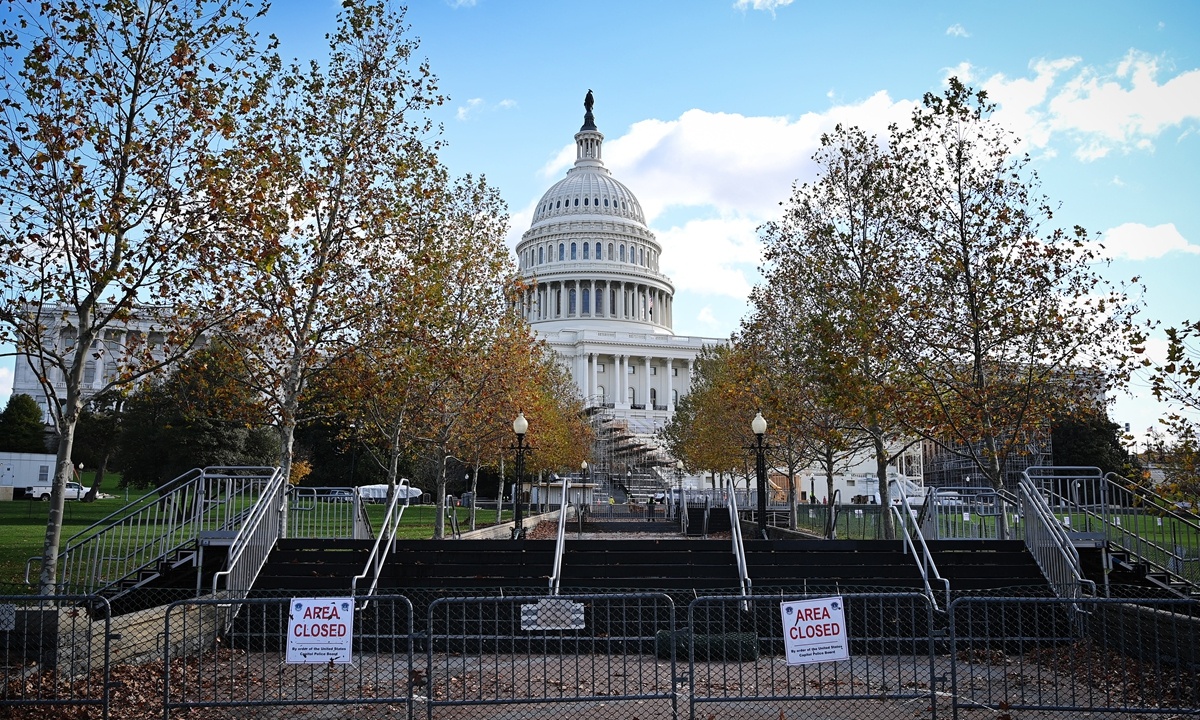
US Capitol Building in Washington, DC (Photo: AFP)
Joe Biden was officially sworn in as the 46th President of the US on Wednesday. Since the election day on November 3, 2020, there have been constant incidents and chaos in the US. This has triggered discussions about whether the US political and social system is resilient enough. After the riots in the US Capitol were quelled, former vice US president Mike Pence said that "the world will again witness the resilience and strength of our democracy."
Is this really the case? Is the current US political and social system really as tough and powerful as some US politicians described? I'm afraid not.
First of all, the US system simply cannot prevent elected officials from harming the country. The US government is generally formed through voting and the Electoral College system. But history has proven that the election system cannot guarantee that the elected can represent the so-called will of the majority. Nor can it prevent elected officials from harming the country.
Confrontation and wrangling between the two US parties seem to be commonplace. Some legislative proposals are often abandoned halfway through and even change frequently. It is not uncommon for the government to shut down. The US system's "resilience" has not performed well in preventing officials and members of Congress from acting willfully or even misleading the country.
Second, the US system cannot resolve deep-rooted social problems, nor can it effectively deal with sudden crises. The US has been promoting its so-called universal values to the world, but these values seem ineffective even inside the US. They cannot help bridge the differences and opposition in their very own country. Deep-rooted problems including racial conflicts and extreme poverty have remained unsolved. In fact, they have even worsened.
Take racial conflicts. Although the US has no discriminatory legal provisions in form, the implicit discrimination against ethnic minorities is everywhere. Meanwhile, many white people are indignant about potential reverse discrimination. In fact, this has become a normalized situation in the US society. Even during the Obama administration, ethnic conflicts never stopped.
The chaos and incompetence of the epidemic response has also made a mockery of the US. The world's richest, most technologically advanced country has seen anti-science, inequality and even responsibility-shifting everywhere in its anti-epidemic work. The so-called resilience of American institutions are clearly inadequate to deal with these problems.
Third, American institutions cannot necessarily quickly respond to immediate errors. For example, it took 95 years for all blacks to get the right to vote since the approval of the 15th Amendment to the US Constitution in 1870. It also took 61 years to abolish of the infamous China Exclusion Act. Where can we see the promised institutional resilience of the US when the country simply left so many obvious mistakes uncorrected for hundreds of years?
Finally, America's soft power will not be so easily regained. The Trump administration has changed the look of the US almost to a degree that is beyond recognition. While the Biden administration has vowed to change the "America First" policy of the Trump era, the faith in Trumpism still has deep roots. No one can afford the fuss that the US might make again and again.
Objectively speaking, most institutions have a degree of self-correcting capacity, and so does the US. This is not an attempt to compare the merits of different systems, but a series of examples to show that the American system is not as robust as many might think.
Indeed, the political decline of the US has become more apparent. Trump's election victory in 2016 was seen as part of the US society's response to it. The US needs to have some deep introspection, and not allow itself to continue heading down the wrong path.
The author is a research fellow at the Institute of American Studies at the Chinese Academy of Social Sciences.


